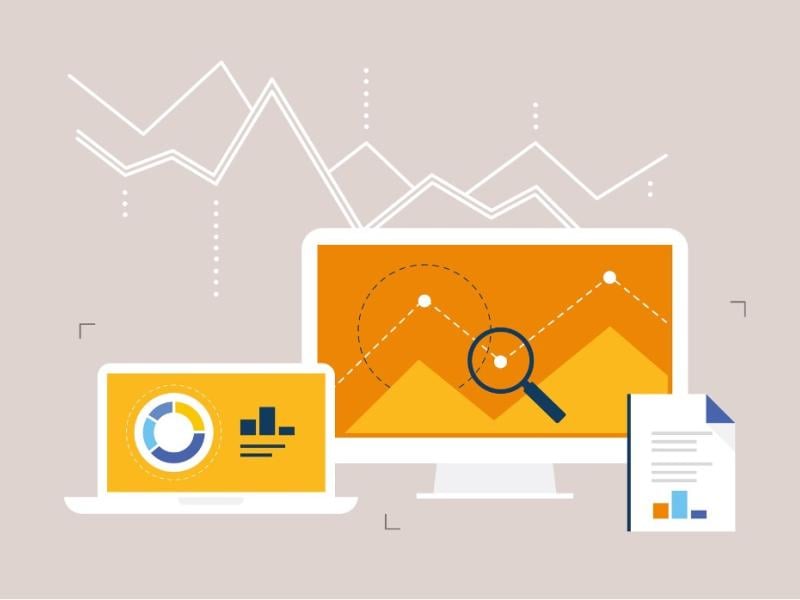As more B2B companies shift to eCommerce, strategically aligned eCommerce website development is critical for success. More than an online storefront, your B2B eCommerce website should serve as a powerful tool that streamlines operations, enhances the customer experience, and drives revenue growth.
However, to develop a B2B eCommerce solution that meets the unique needs of business buyers, you must consider a range of technical and functional factors. From ensuring scalability and security to integrating with existing business systems, each element creates a seamless and effective digital buying journey.
This article explores key considerations to address as you design and implement a B2B eCommerce platform. We also describe key case studies that build upon Unleashed’s extensive experience in B2B eCommerce. When you understand these critical factors and use cases, you can position your online sales channels for competitive advantage and long-term success.
What Is a B2B eCommerce Website Developer?
A B2B eCommerce developer is a specialized web developer who builds and maintains online stores and platforms for businesses selling to other businesses rather than consumers. As the architect behind your digital store, a B2B eCommerce web developer provides comprehensive services that go beyond simply creating a functional, user-friendly website.
These developers build custom eCommerce websites tailored to your business needs to ensure brand alignment and appeal to your target audience. Doing so requires a deep understanding of web technologies, content management systems (CMSs), programming languages, and eCommerce-specific frameworks.
Their responsibilities include integrating various eCommerce solutions, such as payment gateways, customer accounts, and invoicing functionalities, into your website. eCommerce web developers must also possess strong design skills and a deep understanding of user experience (UX) principles. They can then optimize the website layout, product presentation, checkout process, and other critical touchpoints to enhance the overall customer journey.
What’s more, the growing popularity of mobile devices for online shopping has led eCommerce developers to focus on mobile app development. They create intuitive and seamless shopping experiences across all devices so it’s easy for customers to check specs and place orders 24/7, even on the go.
B2B vs. General eCommerce: Differences and Website Development Skills
The following specialized skills differentiate B2B eCommerce developers and make their expertise essential for building scalable and secure business platforms.
1. Expertise in B2B-Specific Features and Functionalities
B2B eCommerce platforms require unique features, such as complex pricing structures, bulk ordering, custom catalogs, and advanced B2B workflow management. B2B eCommerce developers need deep expertise in these specialized features and their requirements.
2. Integration Capabilities
B2B eCommerce platforms must seamlessly integrate with a company’s existing back-end systems, such as enterprise resource planning (ERP) software and customer relationship management (CRM) tools. Developers need strong skills in API development, data integration, and system architecture to enable these critical integrations.
3. Security and Compliance Focus
B2B transactions often involve sensitive business data and high-value orders. Developers should prioritize security, data protection, and compliance with industry regulations. Skills in secure coding, encryption, and access management are also essential.
4. Scalability and Performance Optimization
B2B eCommerce sites must handle large product catalogs, complex workflows, and high-volume transactions. Developers need expertise in scalable architecture, caching, and performance tuning to ensure the platform can grow with the business.
5. B2B User Experience Design
Providing a seamless, intuitive experience for B2B buyers takes specialized UX skills. Developers must understand the specific needs, pain points, and buying behaviors of B2B customers.
6. Customization and Flexibility
B2B companies often have unique business needs that demand a highly customizable eCommerce platform. Developers should have strong skills in modular, extensible architecture to enable easy customization and future adaptability.
B2B eCommerce Website Requirements
Successful B2B eCommerce website development calls for a strategic approach that addresses the unique needs and expectations of business buyers. Foundational features provide the core functionality for streamlined online purchasing, while advanced features can help differentiate your business and drive greater success. With both foundational and advanced elements, you can create a seamless, engaging, and efficient online buying experience for your customers.
Foundational B2B eCommerce Features
There are several features that every basic B2B eCommerce website needs, such as:
- Robust Product Catalog: A comprehensive and searchable product catalog lets customers easily browse and find the items they need. Product videos are a great way to elevate catalogs and showcase product features.
- Customizable Ordering Process: B2B buyers have unique ordering demands. Your website should support features such as custom quotes, bulk ordering, and order approval workflows.
- Secure Payment Options: It’s crucial to offer a range of secure payment methods, such as net terms, purchase orders, and electronic funds transfer.
- Account Management: Customers should also be able to manage their account information, view order history, and access relevant documentation like invoices and shipping details.
- Responsive Design: The website should be mobile-friendly and accessible across devices so B2B buyers enjoy a seamless experience from anywhere.
Advanced B2B eCommerce Features
Advanced features can help your website stand out. For instance:
- Personalized Pricing and Discounts: Dynamic pricing and custom discounts based on factors such as customer segment, order volume, or negotiated contracts can provide a competitive edge.
- Seamless Integrations with Business Systems: An eCommerce platform that works with the company’s existing ERP, CRM, and other critical business systems ensures data accuracy. It also streamlines operations and gives a holistic view of customer interactions.
- Advanced Reporting and Analytics: Detailed reports and analytics on sales trends and inventory levels can help B2B businesses make data-driven decisions.
- Subscription and Recurring Orders: Subscription-based models or the ability to set up recurring orders can improve customer retention and offer predictable revenue streams.
- Integration with Procurement Systems: Seamless integration with procurement systems, such as Electronic Data Interchange (EDI) and PunchOut catalogs, streamlines the ordering process. It’s also more compatible with the buyer’s existing workflows.
- Role-Based Account Management: Give buyers, procurement managers, and decision-makers tailored access and permissions to enhance collaboration and control within the organization.
- Advanced Search Capabilities: Features such as faceted search for large product inventories, search by image, and product comparisons enable customers to quickly find the items they need, even in complex catalogs.
- Quoting Tools and RFQ Functionality: Quoting tools and Request for Quote (RFQ) functionality lets customers request custom pricing and negotiate terms to further support the B2B sales process.
- Comprehensive Content Management: A robust CMS enables businesses to easily create, manage, and update product information, educational resources, and other website content.
- Order and Delivery Tracking: Real-time updates on order status and delivery timelines give B2B buyers visibility into the fulfillment process. This builds trust and creates realistic expectations.
B2B eCommerce Website Development Strategy and Costs
The functionality required for a B2B eCommerce website can vary significantly depending on the company’s underlying business model and strategic priorities. Different B2B models influence eCommerce website development in the following ways:
1. Manufacturing
Manufacturers that sell directly to business customers often require more advanced features. They must support complex pricing, custom orders, and integrations with their production and inventory systems. Unleashed worked with a $500+ million revenue-generating manufacturer Dixon Valve and Coupling Company to build key functionalities in their B2B eCommerce platform, including these features below:
- Robust product configurators to let buyers customize products.
- Quoting tools and RFQ management to handle complex B2B sales cycles.
- Advanced pricing and discount rules based on customer segments, customizations, and order volumes.
- Tight integration with ERP and manufacturing systems to ensure accurate inventory and order fulfillment.
2. Distributors/Wholesalers
Distributors and wholesalers, on the other hand, may have a larger product catalog and focus more on efficient order processing and inventory management. Unleashed worked with its client BSN Sports, both a manufacturer and distributor, to facilitate an interactive 3D product catalog that could also further customize to the needs of end-customers. Important features in a distributor-based B2B eCommerce platform include:
- Powerful search and filtering to help customers navigate large inventories.
- Streamlined ordering workflows, such as support for bulk orders and purchase orders.
- Real-time inventory visibility and availability updates.
- Integrations with supplier systems to automate product data and pricing updates.
- Integrations with transportation and logistics providers.
3. Professional Services
Service-based B2B companies will require a different approach. They often prioritize eCommerce functionalities such as online appointment booking and client portals. The ability to sell digital products or subscriptions through their website is also critical. With our client American Medical Informatics Association (AMIA), Unleashed created personalized digital content, such as on-demand professional development courses, and built a platform on the website to facilitate the sale of these courses.
4. SaaS
B2B SaaS companies require specific eCommerce features to sell software licenses, manage user seats or subscriptions, and provide self-service account management for clients.
5. Marketplace
B2B marketplaces need advanced catalog management, vendor onboarding, and commission tracking to facilitate transactions between multiple buyers and sellers.
Regardless of the specific business model, the key is to deeply understand your target customers, their pain points, and their purchasing behaviors. You can then design the eCommerce platform to address those needs and optimize the conversion process.
Cost Factors for B2B eCommerce Website Development
Building an effective B2B eCommerce website involves several cost factors beyond just the initial development. When determining your budget and costs, be sure to consider the following:
Domain Name, Hosting, and SSL Certificate
These costs are sometimes included in your eCommerce platform fees. For open source or custom development, these must-have components are generally a small additional cost.
Software or Platform Selection
The choice of eCommerce platform (e.g. Magento, Shopware, Shopify Plus) will impact upfront and ongoing costs. Custom solutions require a higher initial investment than off-the-shelf solutions. But off-the-shelf solutions may not adequately meet all your business needs.
Customization
B2B eCommerce sites often need extensive customization to support complex product catalogs, pricing models, and integration with back-end systems. More customization generally means higher development costs. However, you may save money in the long run. An efficient, future-proof system can fast-track workflows, improve efficiency, reduce errors, and enhance the customer (and employee) experience.
Integration
Integrating the eCommerce platform with ERP, CRM, and other business systems is critical for B2B but may add to the overall project budget.
Content Management
Maintaining a robust product catalog, technical documentation, and other content requires an efficient CMS. That can come at an additional cost.
Security and Compliance
Stringent security measures and compliance with regulations such as PCI DSS can add to the overall cost. However, ignoring compliance demands can lead to noteworthy fines, legal fees, loss of clients, and an irreparably damaged reputation.
Ongoing Maintenance
Websites require continual updates, bug fixes, and feature enhancements. Should you go with an off-the-shelf solution, these costs may be included in your existing monthly subscription fee.
Payment Processing Costs
Online payment providers charge a per-transaction fee to process payments. This is often negotiable for enterprise-level organizations.
Carefully evaluate these cost factors upfront to budget effectively for your eCommerce website development. Doing so will ensure the necessary functionality to support your unique business needs.
Key Considerations for B2B eCommerce Website Development
B2B eCommerce website development requires careful consideration of a range of technical and strategic factors. Each of the following elements plays a crucial role in creating an efficient, secure, and user-friendly experience for business buyers.
Scalability
B2B eCommerce sites often need to support large product catalogs and high-volume transactions. The underlying infrastructure must be capable of handling thousands of SKUs and bulk orders. That is, scaling to meet high demand without compromising performance.
UX for B2B Buyers
B2B buyers typically work within complex organizational structures. This calls for features such as role-based access, custom dashboards, and streamlined ordering workflows. The platform should also simplify navigation for multi-user accounts and procurement teams.
Security
Given the sensitive nature of B2B transactions, robust security measures are essential. This includes SSL encryption, multi-factor authentication, and adherence to relevant industry standards (e.g., PCI DSS for financial services).
Site Speed and Performance
B2B buyers expect a seamless, responsive experience, even when browsing extensive product inventories. Optimizing website performance through efficient image and asset loading can significantly improve conversion rates.
Analytics and Reporting
Robust tools that track order history and buyer trends are essential for strategic decision-making. Comprehensive reporting and analytics features enable you to gain valuable insights into customer behavior, sales patterns, and other key performance indicators.
Compliance
Depending on the industry, the eCommerce platform may need to comply with various regulations, such as HIPAA for healthcare. This ensures sensitive data is handled securely.
Simplify B2B eCommerce Website Development With Unleashed
The success of a B2B eCommerce website hinges on its ability to streamline operations, enhance the customer experience, and drive measurable business results. With this article as a guide, you can develop a powerful online sales platform that supports your broader B2B growth strategy. You’ll also solidify your position as an industry leader.
At Unleashed, we specialize in B2B eCommerce website development. Our team of experts can walk you through every step of the process, from initial assessment to full development and ongoing optimization. Let’s unlock the full potential of your website and digital assets. Whether you need to start from scratch or want to improve your existing system, talk to us.






